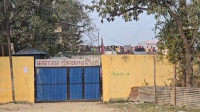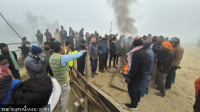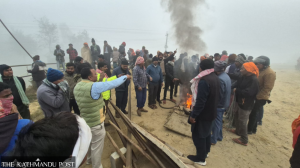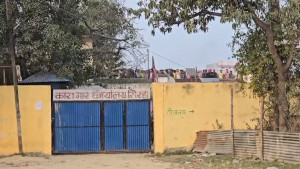Madhesh Province
Seven kidney patients have died in the last 36 days at the National Hospital in Birgunj
While relatives allege malpractice, director Basruddin Ansari says his hospital is not responsible for dialysis patients who die after returning home.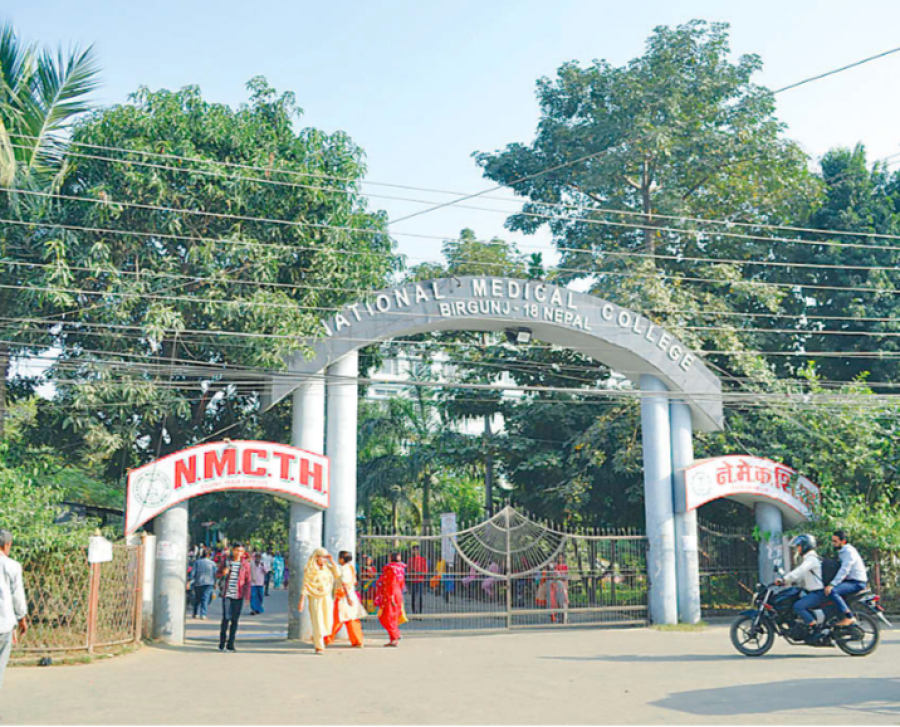
Bhusan Yadav
On May 12, Krishna Thakur of Bahudarmai Rural Municipality in Parsa visited the Birgunj-based National Medical College and Teaching Hospital for dialysis. He had undergone dialysis at the same hospital three times already, but this time, his health began to deteriorate upon reaching home. He was admitted to the hospital’s Intensive Care Unit on May 17 and the next day, he died.
“Krishna did not have any other serious health problems. He had been undergoing regular dialysis at the Narayani Hospital for the past four years,” said Santosh Thakur, Krishna’s brother-in-law. “He died due to the negligence of doctors at the National Medical College and Teaching Hospital.”
Krishna started going to the National Hospital after his regular health care centre, Narayani Hospital, was designated a Covid-19 hospital by the authorities. From his very first visit to National, Krishna had begun to report health problems, said Santosh. But doctors had told the family that the dialyser chemical they were using was different from the one used at Narayani and things would stabilise within a few days. Krishna’s health never stabilised.
But Krishna is not the only kidney patient who died recently at the National Hospital. In the last 36 days, 40 kidney patients have been referred to the National Hospital by Narayani Hospital, and seven have died.
“The health condition of all seven patients was stable when they were receiving dialysis services here,” said Narendra Kushwaha, a health worker at the renal unit of Narayani Hospital, which is a government-run sub-regional hospital. “Their condition might have deteriorated due to negligence during dialysis.”
On April 21, 45-year-old Nasharin Bano of Birgunj 12 was rushed to the emergency when her health worsened during dialysis.
“She died within a few minutes,” said Mohammad Kalam Sheikh, Bano’s husband.
On May 21, 50-year-old Taibun Nesha of Rautahat began vomiting on her way home after dialysis at the National Hospital. She died the next day.
The seven who’ve died so far at the National Hospital are Krishna Thakur, Nasharin Bano, Taibun Nesha and Ranjit Mandal of Rautahat, Nagendra Jha of Birgunj, Ajaya Karki of Sarlahi and Nandalal Mahato of Bara.
On April 12, the health emergency and disaster management unit at the Ministry of Health and Population directed the National Hospital to provide treatment to kidney patients referred from Narayani Hospital since the latter had been turned into a coronavirus-specific hospital. The ministry had also instructed National Hospital to not charge higher medical fees than those prescribed by the health insurance board.
Following the deaths, other kidney patients are now wary of visiting the National Hospital for dialysis. Family members of the patients who died also submitted a memorandum to the Parsa chief district officer on May 27, demanding an investigation into the deaths.
According to Rambishwas Kushwaha, a family member of a kidney patient in Birgunj, the health workers at National Hospital operate the dialysis machine at a higher speed than at the Narayani Hospital and that while Narayani used one dialyzer only twice, National was using the same dialyser up to 10 times.
“The time duration of one dialysis session at Narayani Hospital is around three hours but at National Medical College and Teaching Hospital, a session lasts only an hour and a half,” said Rambishwas.
According to Dr Niraj Singh, chief of the renal department at Narayani Hospital, one dialyser can be used for a maximum of three to four times and that each dialysis session should last up to three-and-a-half hours.
Basruddin Ansari, director of the National Medical College and Teaching Hospital, admitted that the hospital was functioning under pressure to treat kidney patients referred from Narayani Hospital.
“We were providing dialysis services in three daily shifts earlier. We now have to run up to five shifts after an increase in patients referred from Narayani Hospital,” said Ansari, who was a mayoral candidate for Birgunj from the CPN-UML during the 2017 local level elections. “The patients died after their dialysis was over and when they had reached home. It is not our responsibility if a patient dies at home.”
Locals are now afraid of seeking treatment at National Hospital but they have few choices. Narayani Hospital has remained closed since April 14 and dialysis is not a medical procedure that can be put off.
“The government advised patients to seek treatment elsewhere but failed to ensure proper dialysis services,” said Taiyab Miya, a relative of a kidney patient. “Seven kidney patients are now dead.”




 20.98°C Kathmandu
20.98°C Kathmandu




